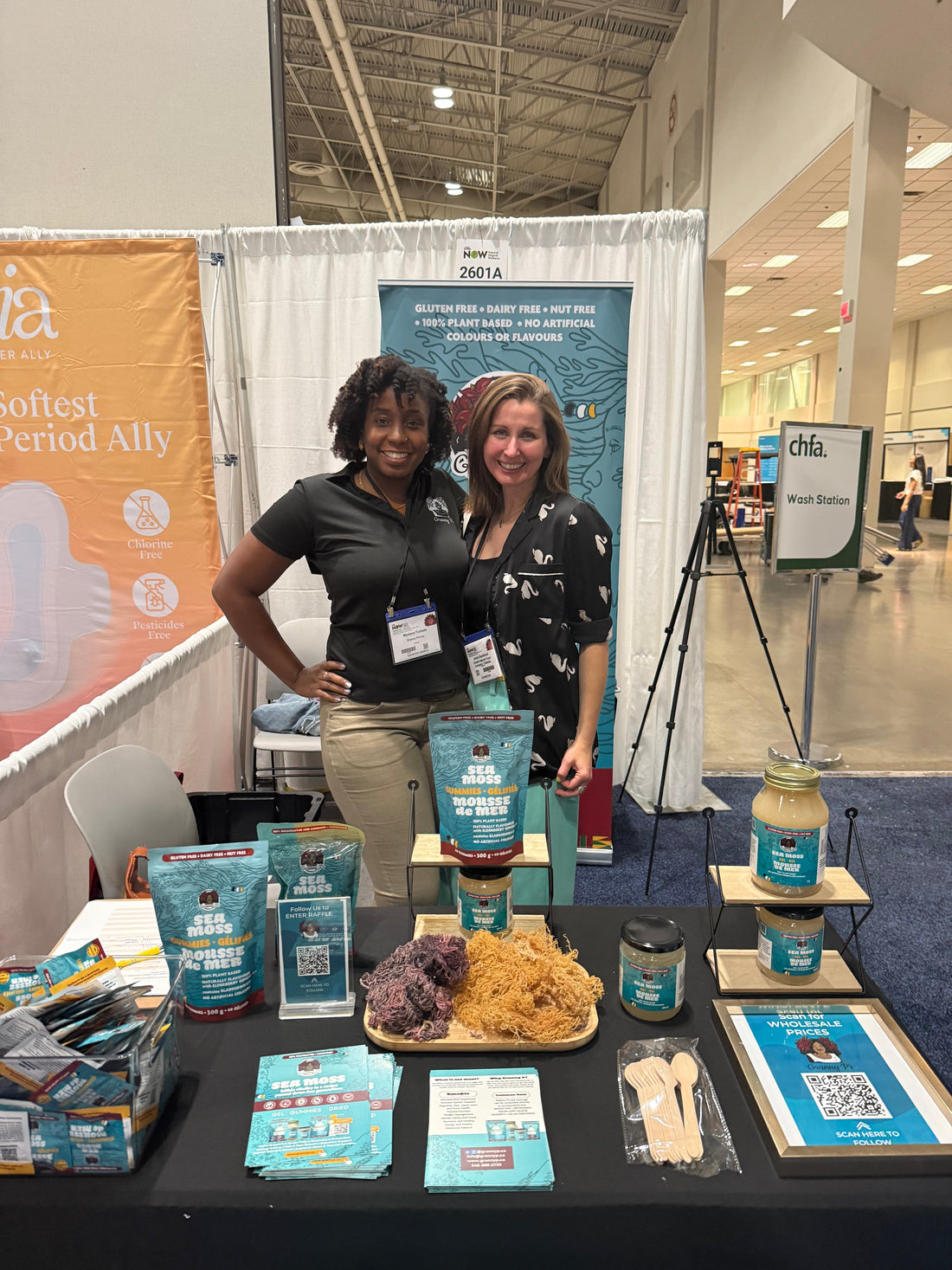This is my lived experience and may not reflect that of others, but I share it in hopes that it opens doors for the next entrepreneur.
A Five-Year Journey to CHFA
It took me five years to attend the Canadian Health Food Show (CHFA)—Canada’s largest gathering of natural health and food businesses. Many of my fellow small business owners were launching there for the very first time, some even sponsored by organizations that covered the cost of their booth in Incubator Alley. As a woman of color, I often felt unsupported on this journey.
For years, my strategy was simple: physically walking into stores during my kids’ soccer practices, targeting those neighbourhoods. This grassroots approach brought small wins—I even met a purchasing manager who admitted they had seen my emails but had never responded. But it also revealed a harder truth: there is a smarter, more efficient path that I didn’t know existed.
Being “Seen as Not Ready”
Despite my best efforts to stay in the loop, nobody told me about CHFA. Was I perceived as “not ready”? I had to figure it out on my own. And while I celebrated being part of Incubator Alley—which featured other people of color with incredible products—it made me wonder why it had taken so long. Are we assuming small businesses already know about these opportunities? Or are certain entrepreneurs left out of the loop?
The Support That Exists—And What’s Missing
It’s not that London hasn’t supported me—because it has. Local mom-and-pop health stores embraced me early on, put my products on their shelves, and gave me the confidence to keep pushing. For that, I’m deeply grateful.
But I contrast this with a recent trip to Detroit. After just one phone call and one store visit, I was told directly about a platform I needed to join so health stores could easily discover my brand. Clear. Simple. No middleman. That was step one.
Knowledge Beyond London’s Borders
In both my business and charity work, I’ve noticed a pattern: once you leave London’s perimeter, you often find a wealth of knowledge, information, and like-minded individuals who are not gatekeeping.
I recently joined BlackOwned Hamilton, and their event was nothing short of amazing. It was true cross-sectoral support—even the mayor was in attendance, openly acknowledging the barriers faced by people of color in business. Then I come back to London, and it feels as if these issues don’t exist. The mindset seems to be: “just ask, and it shall be granted.” But the real question is: who exactly do you ask?
The Funding Puzzle
Another question that weighs on me is around Black-focused funding. Across Southwestern Ontario, small businesses like mine hear about these opportunities everywhere. Yet despite trying, I am not sure what I’m doing wrong or what step I’m missing.
I see my brothers and sisters in the GTA getting real support—opening brick-and-mortar spaces and scaling sustainable businesses—and I salute them. But I also wonder: why is it that manufacturers like us struggle to tap in, while much of the visible support seems to go toward chefs, restaurants, or high-tech innovators? Where do small Black manufacturers turn for the same access?
Too Many Questions, Not Enough Answers
So many questions remain. Is London a testing ground—if you survive here, then you’re deemed ready for Canada-wide exposure? Are we working in silos, where only certain businesses get access to critical knowledge? Is it really about networks, or is it about race, given the barriers minority-owned businesses still face?
I don’t share this to point fingers. I share it so the next Black woman-owned business has a smoother ride than I did. Because the truth is, Canada is built on small businesses—they make up 98% of all businesses in this country. Yet too many of us still rely on trial and error to access opportunities that others receive by introduction.
A Call to Action
If you run support programs for small businesses—whether paid or free—please don’t assume entrepreneurs already know where to go or what’s available. I have paid consultants, and even then, this information didn’t trickle down. Sharing the first step could make all the difference.
Because when small businesses win, communities win. And sometimes, it starts with simply making sure the right doors are visible—and open.

